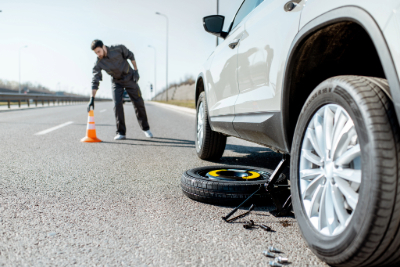OUR BLOG
Use our car emergency kit checklist to ensure you’re ready for any road trouble. Check out these expert tips on how to assemble it by Cam Synthetics in Concord, NC!

As a seasoned driver, you know that surprises on the road are just part of the journey—be it a flat tire or a little bump here and there. That's why having an emergency kit in your car is essential. While you can't predict every inconvenience, you can be prepared for them with the right tools and supplies.
Not sure where to start? Don't worry! This post will walk you through a must-have car emergency kit checklist. Read on to ensure you're ready for anything that comes your way!
Your vehicle deserves top-tier care. Contact Cam Synthetics in Concord, NC, at (704) 791-6900 for personalized recommendations on the perfect oils for your car. Don’t forget to explore AMSOIL's online store for all your car care essentials anytime!
Understanding the Need for an Emergency Kit
Driving in North Carolina means bracing for the unexpected. From heavy rain to sudden snowstorms, the weather can turn on a dime. Even a minor fender bender can become a major inconvenience, especially in remote areas. And let's not forget about those medical emergencies that can strike without warning.
That's why a well-stocked car emergency kit is a must-have. It's more than just a convenience; it's your lifeline in a crisis. With the right tools and supplies on hand, you can handle any situation that comes your way with confidence and peace of mind.
Must-Have Items for Your Emergency Kit
Safety Items
Safety should always come first! Equip your kit with reflective triangles or flares to alert other drivers if you find yourself on the side of the road. A reliable flashlight with extra batteries is essential for visibility during nighttime emergencies. Don’t forget a comprehensive first-aid kit; it’s your best friend during medical emergencies and can be a lifesaver in critical moments.
Tools and Repair Equipment
Mechanical issues can happen when you least expect them. Jumper cables are a must for those frustrating moments when your battery decides to give up. A tire inflator and sealant can quickly resolve flat tires, letting you get back on the road in no time. Basic tools like screwdrivers and wrenches are also handy for minor repairs, making them essential additions to your kit.
Comfort and Survival Supplies
Comfort is key when dealing with emergencies. Warm blankets or emergency thermal blankets are essential for cold weather situations. Pack non-perishable snacks and bottled water to keep your energy up while you wait for assistance. Extra clothing items, such as gloves or a poncho, can keep you comfortable regardless of the weather.
Important Documentation
Keep copies of your vehicle registration and insurance information in your kit for quick access in case of an emergency. A list of emergency contacts will also help you reach loved ones without hassle.
Seasonal Considerations
As the seasons change, so should your emergency kit. In winter, an ice scraper is invaluable, while sunscreen is a must-have for summer trips. Adjusting your supplies based on the season can make a big difference in your comfort and safety.
Keep your car safe from winter’s toughest conditions with high-quality oil like AMSOIL Signature Series 0W-16. This oil is designed to perform well in cold weather and provide long-lasting protection for your engine. To learn more, call Cam Synthetics in Concord, NC, at (704) 791-6900, or shop for AMSOIL online for easy ordering!
How to Assemble and Keep Your Emergency Kit
Choosing a Suitable Container
Select a sturdy container to hold your emergency supplies. A durable bag or a plastic bin that fits easily in your vehicle will work well. Ensure it’s something that can withstand the bumps and jolts of the road.
Organizing Your Supplies
Keep your supplies organized for quick access. Group similar items together, and consider using zip bags for smaller items. Labeling the bags or containers can also help you find what you need quickly.
Optimal Storage Locations
When it comes to storage, place your emergency kit in an easily accessible location, such as the trunk or behind the back seat. Just make sure it’s secure so it doesn’t roll around while driving.
Regular Checks and Maintenance
Schedule regular checks on your emergency kit—ideally, at least twice a year. Check expiration dates on food and water, and replace items as needed. Keeping your kit fresh is vital for effectiveness.
Conclusion: Your Safety is Worth It
Being prepared with a car emergency kit is essential for every driver in North Carolina. Don’t wait until an emergency arises; take action today to create or update your kit. Your safety is worth it!
